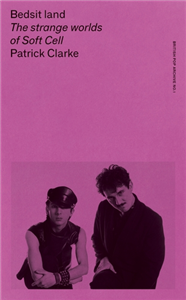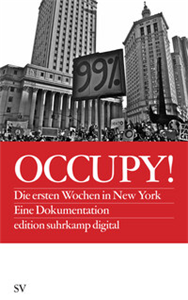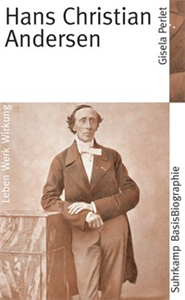Your Search Results
-
Promoted Content
-
Promoted ContentHumanities & Social SciencesMarch 2017
The Arctic in the British imagination 1818–1914
by Andrew Thompson, John M. MacKenzie, Rob David
The Arctic region has been the subject of much popular writing. This book considers nineteenth-century representations of the Arctic, and draws upon an extensive range of evidence that will allow the 'widest connections' to emerge from a 'cross-disciplinary analysis' using different methodologies and subject matter. It positions the Arctic alongside more thoroughly investigated theatres of Victorian enterprise. In the nineteenth century, most images were in the form of paintings, travel narratives, lectures given by the explorers themselves and photographs. The book explores key themes in Arctic images which impacted on subsequent representations through text, painting and photography. For much of the nineteenth century, national and regional geographical societies promoted exploration, and rewarded heroic endeavor. The book discusses images of the Arctic which originated in the activities of the geographical societies. The Times provided very low-key reporting of Arctic expeditions, as evidenced by its coverage of the missions of Sir John Franklin and James Clark Ross. However, the illustrated weekly became one of the main sources of popular representations of the Arctic. The book looks at the exhibitions of Arctic peoples, Arctic exploration and Arctic fauna in Britain. Late nineteenth-century exhibitions which featured the Arctic were essentially nostalgic in tone. The Golliwogg's Polar Adventures, published in 1900, drew on adult representations of the Arctic and will have confirmed and reinforced children's perceptions of the region. Text books, board games and novels helped to keep the subject alive among the young.
-
 Trusted Partner
Trusted Partner
-
 Trusted Partner
Trusted Partner
-
 Trusted Partner
Trusted Partner
-
 Trusted Partner
Trusted Partner
-
 Trusted Partner
Humanities & Social SciencesMarch 1977
Trusted Partner
Humanities & Social SciencesMarch 1977The Leibniz-Clarke Correspondence
With extracts from Newton's 'Principia' and 'Optiks'
by Robert Gavin Alexander
n 1715 Leibniz wrote to his friend the Princess of Wales to warn her of the dangers Newton's philosophy posed for natural religion. Seizing this chance of initiating an exchange between the two greatest minds in Europe, the princess showed his letter to the eminent Newtonian scientist and natural theologian, Samuel Clarke. From his reply developed an exchange of papers which was published in 1717. The correspondence was immediately seen as a crucial discussion of the significance of the new science, and it became one of the most widely read philosophical works of its time.In this edition, an introduction outlines the historical background, and there is a valuable survey of the subsequent discussions of the problem of space and time in the philosophy of science. Significant references to the controversy in Leibniz's other correspondence have also been collected, and the relevant passages from Newton's Principia and Opticks are appended. In 1715 Leibniz wrote to his friend the Princess of Wales to warn her of the dangers Newton's philosophy posed for natural religion. Seizing this chance of initiating an exchange between two of the greatest minds in Europe, the princess showed his letter to the eminent Newtonian scientist and natural theologian, Samuel Clarke. From his reply developed an exchange of papers which was published in 1717. The correspondence was immediately seen as a crucial discussion of the significance of the new science, and it became one of the most widely read philosophical works of its time. Kant developed his theory of space and time from the problems at issue, and the post-Newtonian physics of the twentieth century has brought a revival of interest in Leibniz's objections: some of the problems are still not finally resolved. In this edition an introduction outlines the historical background, and there is a valuable survey of the subsequent discussions of the problem of space and time in the philosophy of science. Significant references to the controversy in Leibniz's other correspondence have also been collected, and the relevant passages from Newton's "Principia" and "Opticks" are appended. ;
-
 Trusted Partner
Trusted Partner
-
 Trusted Partner
Trusted Partner
-
 Trusted Partner
Trusted Partner
-
 Trusted Partner
Biography & True StoriesSeptember 2024
Trusted Partner
Biography & True StoriesSeptember 2024Bedsit land
The strange worlds of Soft Cell
by Patrick Clarke
A rich and revealing examination of the legendary pop duo Soft Cell. Soft Cell are not your average pop band. Marc Almond and Dave Ball may be best known for the string of hits they released in 1981, but the powerful first phase of their collaboration embraced a staggering array of sounds, influences and innovations that would change the face of music to come. In Bedsit land, Patrick Clarke plunges into the archives and interviews more than sixty contributors, including the band members themselves, to follow Soft Cell through the many strange and sprawling worlds that shaped their extraordinary career. They lead him from the faded camp glamour of the British seaside to the dizzying thrills of the New York club scene. From transgressive student performance art to the sleaze and squalor of pre-gentrified Soho. From the glitz of British showbiz to the drug-addled chaos of post-Franco Spain. He emerges on the other side with the most in-depth, innovative and entertaining account of the duo ever written.
-
 Trusted Partner
August 2012
Trusted Partner
August 2012Demokratie?
Eine Debatte
by Alain Badiou, Daniel Bensaïd, Giorgio Agamben, Jacques Rancière, Jean-Luc Nancy, Kristin Ross, Slavoj Zizek, Wendy Brown
Zu Beginn des dritten Jahrtausends ist die Situation der Demokratie paradox: Einerseits sind mehr Staaten denn jemals zuvor demokratisch verfaßt, andererseits nehmen die Krisensymptome in den Staaten, die einstmals so etwas wie eine demokratische Avantgarde bildeten, zu: Die Wahlbeteiligung sinkt, schillernde Persönlichkeiten wie Silvio Berlusconi oder Nicolas Sarkozy gewinnen an Bedeutung, Wahlkämpfe geraten zu schalen Marketingkampagnen. Colin Crouch hat all diese Trends in dem Band "Postdemokratie" präzise auf den Punkt gebracht. In diesem Band setzen sich nun acht herausragende politische Denkerinnen und Denker mit dem Zustand und den Perspektiven der am wenigsten schlechten aller Regierungsformen (Winston Churchill) auseinander, die tageszeitung sprach von einem 'Who's who der internationalen linken Theorie'. Der Diskussionsband enthält Beiträge von Giorgio Agamben, Alain Badiou, Daniel Bensaïd, Wendy Brown, Jean-Luc Nancy, Jacques Rancière, Kristin Ross und Slavoj iek.
-
 Trusted Partner
Literature & Literary StudiesOctober 2012
Trusted Partner
Literature & Literary StudiesOctober 2012Galatea
by John Lyly, David Bevington, Leah Scragg
Devised as an entertainment for a Tudor monarch, Galatea might be seen, paradoxically, as a parable for our time. Inhabiting a world engaged in a process of change, the characters find themselves locked in a series of transgressive situations that speak directly to contemporary experience and twenty-first-century critical concerns. Same-sex relationships, shifts of authority, and the destabilization of meaning all lend the play a surprising modernity, making it at once the most accessible of Lyly's plays and the one most frequently performed today. Designed for the student reader, Leah Scragg's edition offers a range of perspectives on the work. An extensive introduction locates the play in the context of the Elizabethan court, opening a window onto a kind of drama very different from that of more familiar sixteenth-century writers, such as Marlowe and Shakespeare. The latter's indebtedness to the play is fully documented, while detailed critical and performance histories allow an insight into the work's susceptibility to reinterpretation. ;
-
 Trusted Partner
August 2012
Trusted Partner
August 2012Demokratie?
Eine Debatte
by Giorgio Agamben, Alain Badiou, Slavoj Žižek, Jacques Rancière, Jean-Luc Nancy, Wendy Brown, Daniel Bensaïd, Kristin Ross
Zu Beginn des dritten Jahrtausends ist die Situation der Demokratie paradox: Einerseits sind mehr Staaten denn jemals zuvor demokratisch verfaßt, andererseits nehmen die Krisensymptome in den Staaten, die einstmals so etwas wie eine demokratische Avantgarde bildeten, zu: Die Wahlbeteiligung sinkt, schillernde Persönlichkeiten wie Silvio Berlusconi oder Nicolas Sarkozy gewinnen an Bedeutung, Wahlkämpfe geraten zu schalen Marketingkampagnen. Colin Crouch hat all diese Trends in dem Band "Postdemokratie" präzise auf den Punkt gebracht. In diesem Band setzen sich nun acht herausragende politische Denkerinnen und Denker mit dem Zustand und den Perspektiven der am wenigsten schlechten aller Regierungsformen (Winston Churchill) auseinander, die tageszeitung sprach von einem »Who's who der internationalen linken Theorie«. Der Diskussionsband enthält Beiträge von Giorgio Agamben, Alain Badiou, Daniel Bensaïd, Wendy Brown, Jean-Luc Nancy, Jacques Rancière, Kristin Ross und Slavoj Žižek.
-
 Trusted Partner
Trusted Partner
-
 Trusted Partner
Trusted Partner
-
 Trusted Partner
March 2024
Trusted Partner
March 2024Charles Dickens
Little People, Big Dreams. Deutsche Ausgabe
by María Isabel Sánchez Vegara, Isobel Ross, Silke Kleemann
Der kleine Charles war eine Leseratte, Bücher verschlang er wie andere ein Stück Brot. Aber seine Familie war bettelarm, und so musste er mit zwölf die Schule verlassen und in der Fabrik arbeiten. Nun erfand er selbst Geschichten, sie handelten von Menschen, die das Beste aus ihrem Leben machten. So wie er, der – inzwischen Angestellter in einer Kanzlei – Fortsetzungsgeschichten für Zeitungen schrieb, die man ihm aus den Händen riss. Noch heute werden seine Geschichten landauf, landab gelesen. Allen voran die Weihnachtsgeschichte, aber auch die Geschichte von Oliver Twist, einem Waisenjungen, der auf der Straße lebte. War es ein bisschen auch seine eigene Geschichte? Little People, Big Dreams erzählt von den beeindruckenden Lebensgeschichten großer Menschen: Jede dieser Persönlichkeiten, ob Philosophin, Forscherin oder Sportler, hat Unvorstellbares erreicht. Dabei begann alles, als sie noch klein waren: mit großen Träumen.
-
 Trusted Partner
December 2011
Trusted Partner
December 2011Occupy!
Die ersten Wochen in New York. Eine Dokumentation
by Carla Blumenkranz, Keith Gessen, Christopher Glazek, Mark Greif, Sarah Leonard, Kathleen Ross, Nikil Saval, Eli Schmitt, Astra Taylor
Nach Tunis, Kairo, Madrid, Tottenham und Athen hat die globale Welle der Empörung nun auch das Auge des Sturms erreicht, die Wall Street in New York. Die Aktivisten, die am 17. September 2011 den Zuccotti Park im Financial District besetzten, kämpfen unter dem Motto »We are the 99 percent« für soziale Gerechtigkeit, die strikte Trennung von Wirtschaft und Politik und entwerfen Modelle für eine humanere Gesellschaft im 21. Jahrhundert. Unmittelbar nach dem Beginn der Proteste haben sich junge Publizisten und Aktivisten zusammengetan, um die Entwicklungen vor Ort zu dokumentieren. Neben atmosphärisch dichten Reportagen enthält dieser Band Essays über die Hintergründe und Aussichten der Bewegung, darunter Texte von Judith Butler, Joseph E. Stiglitz und Slavoj Žižek.
-
 Trusted Partner
Trusted Partner
-
 Trusted Partner
March 2005
Trusted Partner
March 2005Hans Christian Andersen
by Gisela Perlet
Der Werdegang Hans Christian Andersens vom armen Schustersohn zum erfolgreichen Schriftsteller mutet wie ein Märchen an. Allerdings bemühte er sich auch nach Kräften, diesen Mythos zu pflegen. Andersens Figuren traten schon zu seinen Lebzeiten ihren Siegeszug durch die Welt an und sind bis heute unvergessen.


























